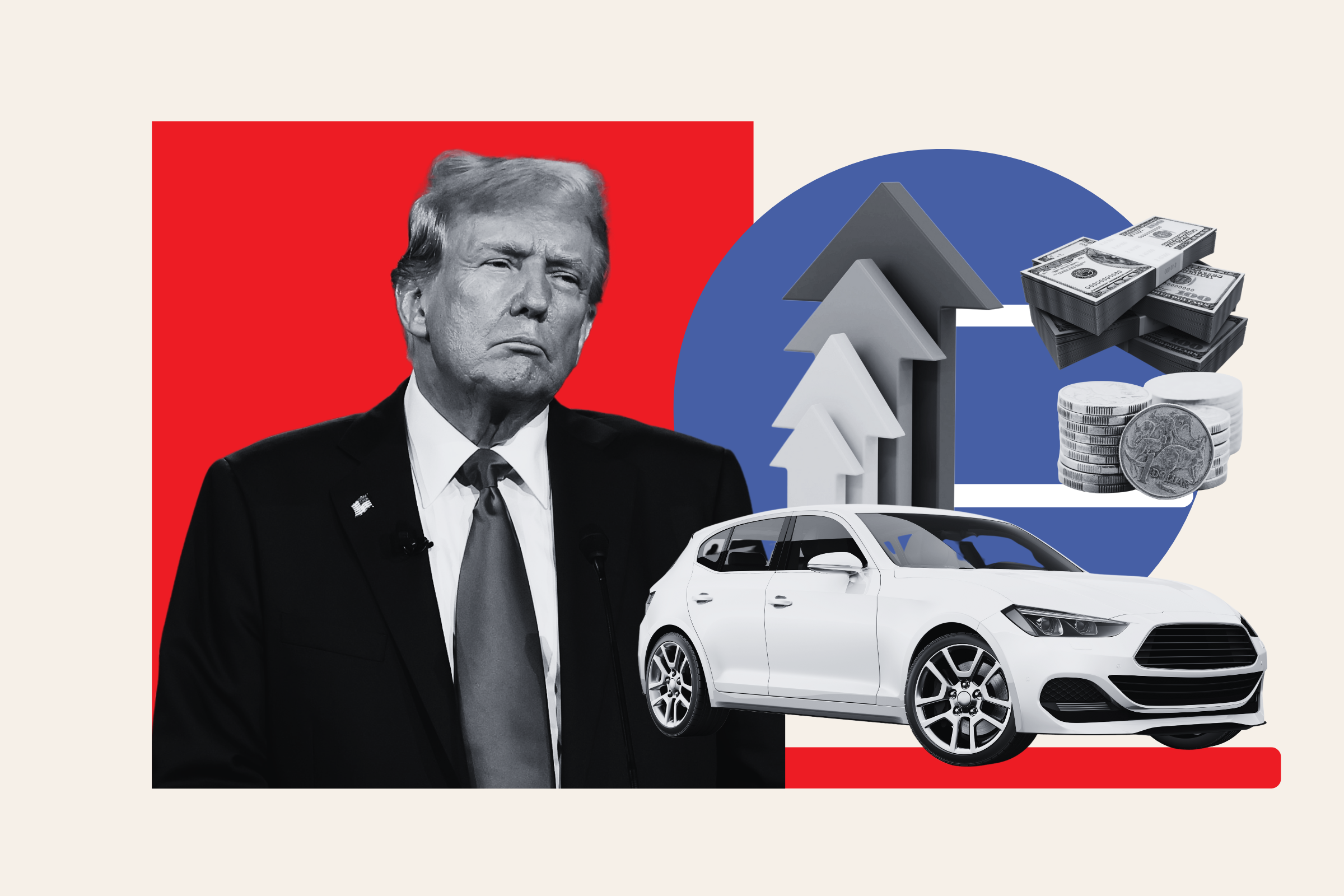President Donald Trump’s 25% import tariffs on goods from Mexico and Canada went into effect on March 4, 2025. These sweeping tariffs will impact various industries, with the automotive sector being one of the hardest hit. Automakers such as Ford, General Motors, Toyota, and Stellantis will face increased costs, ultimately leading to higher prices for consumers.
How Will the Tariffs Affect Car Prices?
The exact price increase for new vehicles remains uncertain, but analysts predict that car prices could rise by anywhere from $4,000 to $10,000, depending on the make and model. While the impact may not be immediately visible, as vehicles already on dealership lots are exempt from the tariff, new shipments arriving after March 4 will reflect the increased costs.

Impact on Car Parts and Manufacturing
It’s not just completed vehicles that are affected—car parts imported from Mexico and Canada are also subject to the tariff. Many vehicles assembled in the U.S. rely on parts from these neighboring countries. For example:
- Ford works closely with Canadian supplier Multimatic, which has contributed parts to the Ford GT and currently assembles the Mustang GTD.
- General Motors, Toyota, and Honda source numerous parts from Mexico and Canada, making their U.S.-assembled vehicles vulnerable to increased costs.

The North American automotive supply chain is highly interconnected, with parts often crossing borders multiple times before final assembly. The new tariffs disrupt this flow, leading to rising production costs for manufacturers and, ultimately, higher prices for consumers.
Industry Leaders Express Concerns
The automotive industry has strongly opposed these tariffs, citing potential damage to jobs and the economy. Ford CEO Jim Farley highlighted the long-term implications at an investor conference in February:
“If you look at the tariffs, let’s be real honest, long term, a 25% tariff across the Mexico and Canadian border will blow a hole in the U.S. industry that we have never seen.”
Major automakers, including Ford, General Motors, and Stellantis, depend on cross-border manufacturing and assembly plants. More than 20% of the cars sold in the U.S. by Toyota, Honda, and GM are produced in Mexico and Canada. Increased costs from tariffs could lead to production slowdowns, potential job losses, and a decline in overall vehicle affordability.

Economic and Consumer Impact
The tariffs’ long-term economic effects could be significant. With production costs increasing, automakers may either:
- Raise vehicle prices, making cars less affordable for consumers.
- Absorb the costs, which could reduce profitability and lead to cutbacks in investments and workforce reductions.
- Shift production, potentially relocating factories and suppliers to non-affected regions, disrupting supply chains even further.
For consumers, the biggest concern is affordability. Those looking to purchase a new car in the coming months may find that prices have risen significantly. The used car market may also be affected as demand for more affordable alternatives increases.
Final Thoughts
Trump’s 25% tariffs on Mexico and Canada are set to shake up the automotive industry, causing rising costs that will likely be passed on to consumers. While the full impact remains to be seen, experts agree that these tariffs could significantly alter the U.S. car market. Whether automakers absorb the costs, shift production, or pass the burden onto buyers, one thing is clear—purchasing a car in the U.S. is about to become much more expensive.
